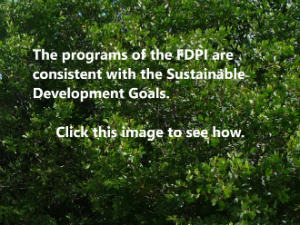By Asad Mohammed and Perry Polar
Paper presented at the Forum for the Future of the Caribbean – May 2015
Abstract
The Caribbean’s contribution to global climate change is negligible, but the projected impacts of global climate change on the region may be devastating, given the limited adaptive capacity of the region’s small islands and low-lying coastal states. Understanding a community’s vulnerability to the potential impacts of extreme weather events, its resilience, and its adaptive capacity to recover from disasters is important, as it can guide appropriate interventions.
Based upon a previous assessment of two large-scale water and sanitation projects in Trinidad and Tobago and Jamaica, the paper proposes a series of practical indicators to measure the vulnerability, resilience and adaptive capacity of small and medium enterprises (SMEs), from which inferences can be made about their host communities. SMEs may engage in the development/ adaption/ adoption of “green” technologies, or, through lobbying efforts, can improve their own, their community’s and/or the country’s resilience to climate hazards. As indicators, SMEs are discrete enumerable entities whose numbers may change over time due to a range of factors, including suitability of location. Management of risk is a normal part of their operation and they have a range of measurable attributes relating to their operational process. The following indicators are discussed: SMEs per area, type of industry, registration status of business, tenure status, topography and environmental conditions, insurance, type and location of data storage, and organisation membership.

No Comments Yet - be the First!